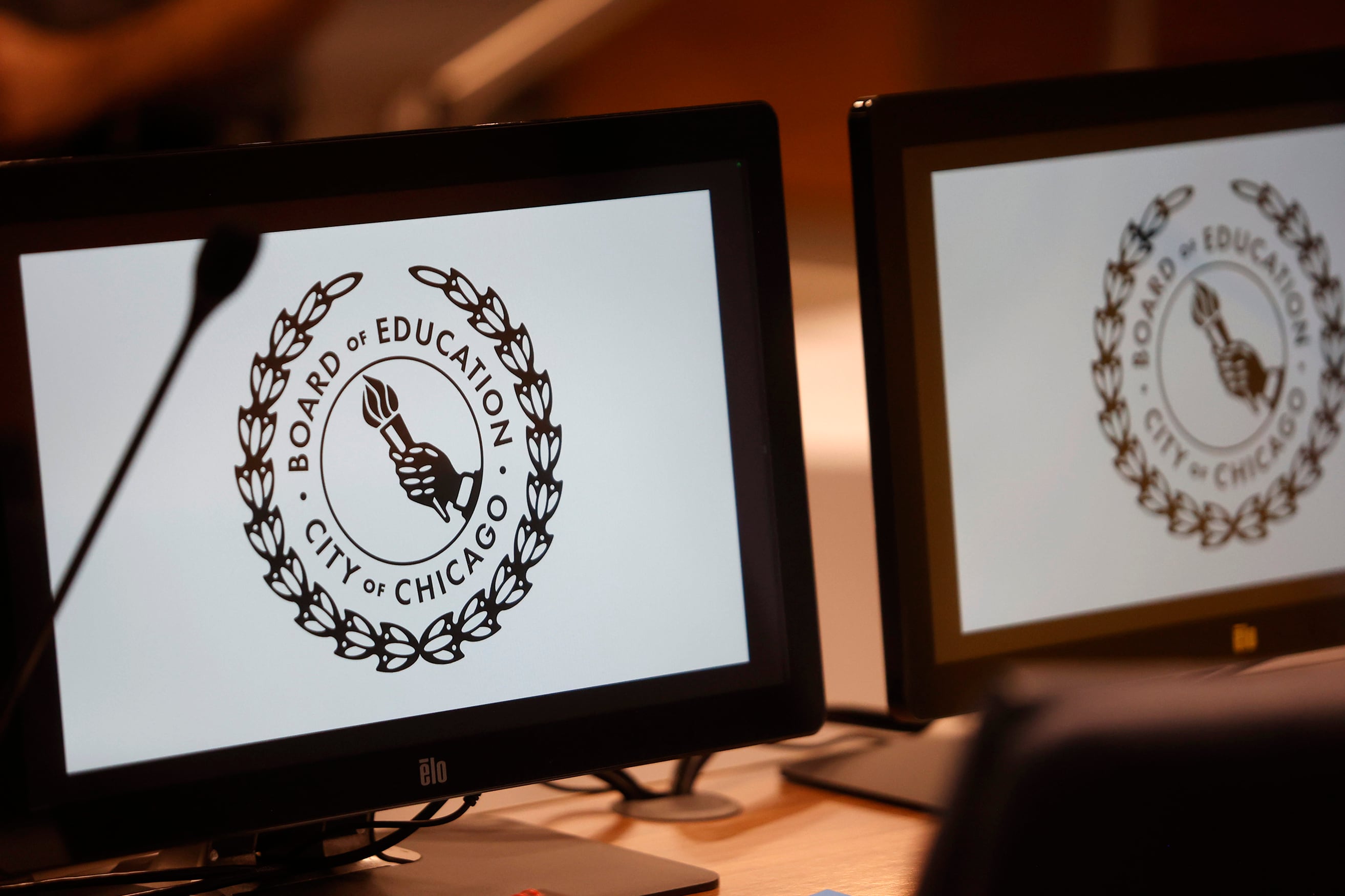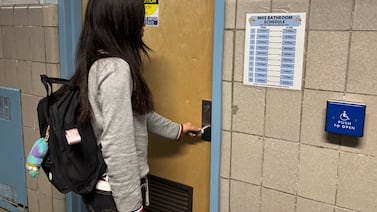Sign up for Chalkbeat Chicago’s free daily newsletter to keep up with the latest education news.
The Chicago Board of Education again delayed voting on renewing contracts with 21 charter schools, leaving families and staff with more uncertainty just months before the end of the school year.
The board voted 15-5, with no discussion, to remove the charter renewals from its Thursday agenda. All ten of Mayor Brandon Johnson’s appointees, plus elected members Therese Boyle, Che ‘Rhymefest’ Smith, Yesenia Lopez, Jitu Brown, and Ebony DeBerry, voted to do so.
Since February, the board has pushed back the vote on most charter renewals by removing the agenda item before the meetings took place.
It’s not clear yet if the charter school renewals, which historically have happened in January, will move to next month’s meeting in late May. The district has so far not recommended closures for any of the schools up for renewal this year.
Neither the school board office nor board president Sean Harden, who moved to delay the vote, responded to a request for comment. According to two school board members, the renewals were pulled because the board is still discussing the proposed renewal lengths. One of those board members said several board members want changes to what the district has already proposed — which include renewal lengths that range between two and four years.
Several charter students and educators spoke during public comment to persuade the board to give them the maximum renewal term of 10 years.
The board also decided to pull a resolution that would have imposed stricter rules for charter schools, though a vote was not needed for that.
The proposed resolution would mark a shift in how this board may want to govern charter schools, which over the past two decades have grown and are now seeing enrollment declines and financial issues. It is already being opposed by the Illinois Network of Charter Schools, which lobbies for charters, while earning some praise — and a push for stronger language — from Chicago Teachers Union leaders.
Two months ago, the board voted to save five of seven Acero charter schools that were slated to close and commit to flipping them into district-run schools.
The resolution that was pulled said charter operators would need to provide the board with an 18-month notice before closing a school, and the operator would be financially responsible for costs associated with any closings. Charter operators would also have to spend most of their “publicly-funded revenues” on services for students, the resolution said.
The resolution had also called for operators to stay neutral in the event their schools move to unionize. Currently, the Chicago Teachers Union represents teachers at schools run by 10 operators.
Jennifer Conant, the Chicago Teachers Union charter division chair, expressed support for the sort of ideas included in the resolution. She said the district should use shorter terms to hold charters accountable when they’re not meeting standards, but that it should also be checking in more frequently on charters so that they have the help they may need to stay open.
She noted that ASPIRA-Haugan received a seven-year renewal in 2018, the longest contract length the school board has awarded. Enrollment dropped “precipitously,” she said, and the network announced in January it would close the middle school.
“The renewal process should be about accountability and support,” Conant said.
Charter operators and staff have pushed for their schools to receive longer renewals. Under Mayors Lori Lightfoot and Brandon Johnson, the district has more frequently renewed schools for two or three years.
Charter operators and staff have argued that longer renewals mean more stability for families and staff. The district, however, says a shorter renewal incentivizes charter operators to improve on student academic performance or other areas highlighted by CPS.
This year, the district recommended two-year renewals for about half of the 21 schools. Before the items were removed from the agenda, four schools were to get three-year renewals, and a four-year extension would have been afforded to six schools — four run by the operator Perspectives.
The district outlined several concerns with each of the schools up for renewals and outlined for more those recommended for two-year renewals. Those concerns included academic performance, how the school serves students with disabilities, and even accurate teacher licensure information. It asked those schools to address those concerns during their renewal terms.
In one notable case, the district recommended a two-year renewal for two Urban Prep campuses located on the South Side. In the fall of 2022, the board moved to close both schools amid allegations of financial mismanagement, failure to properly serve students with disabilities and sexual misconduct allegations against the school’s founder, Tim King. King has denied those allegations.
Urban Prep appealed its closure to the state, which sided with CPS. Urban Prep filed a lawsuit, but an appeals court ultimately decided that CPS had the right to close Urban Prep’s campuses, which were on track to close last June and become district-run. The district extended their contracts for one more year to provide stability for students and staff — and this year is moving to extend the contracts through 2027.
Reema Amin is a reporter covering Chicago Public Schools. Contact Reema at ramin@chalkbeat.org.






